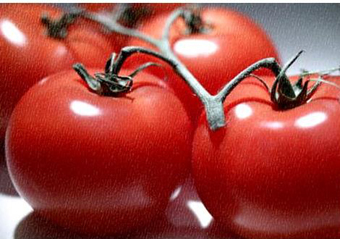

By R. Alan Clanton
Thursday Review Editor
Tomato growers and distributors—currently caught up in a high stakes political food fight over tomatoes produced in Mexico for the U.S. markets—are hoping to challenge Americans to better understand the health benefits of fresh tomatoes in the diet. Once largely regarded as nothing more than a mere garnishment for burgers, sandwiches and salads, extensive studies in recent decades have produced volumes of data demonstrating the remarkable health benefits of the tomato. Major studies have shown that a moderate intake of tomato in the diet can reduce the risk of several internal cancers, may reduce the risk of skin cancer, and may also reduce the risk osteoporosis and heart disease. Plus, tomatoes are loaded with Vitamins C and A.
Tomatoes are packed with a substance called lycopene, one of the most efficient natural antioxidants, a compound which—when ingested through tomato products—does not easily dilute by cooking or processing. But fresh tomatoes—some of these studies have shown—provide one of the richest sources of lycopene, especially when compared to other fruits and vegetables. More remarkably, tomatoes in the diet may actually reduce the risk of certain cognitive dysfunctions, meaning that the tomato surely falls under your grandmother’s rubric of “brain food.”
Though we can find plenty who might dispute the supremacy of tomatoes grown in The Sunshine State (just ask the folks of the tiny town of Slocomb, Alabama, or the people of Grainger County, Tennessee), and though according to the USDA it is California—not Florida—which produces the largest crop of tomatoes each year, the case for fresh tomatoes in the diet remains a stronger one with each passing medical and dietary study. Tomato growers in Florida feel strongly, however, that their product is the most colorful, and the most enjoyable of the red vegetable options nationwide.
Fun fact: do you consider the tomato to be a fruit or a vegetable? Botanically speaking it may be irrelevant, but because of a fight over how to tax the tomato back in the late 1800s, the argument once wound its way through the legal system and all the way to the U.S. Supreme Court, which ruled, in 1883—in a famous case known as Hix v. Hedden—that the tomato was, in fact, a vegetable.
The justices declined, however, to make a judgment on its pronunciation—so feel free, if you must, to call it a “tom-AUGHT-oh.”